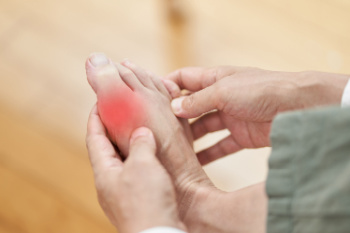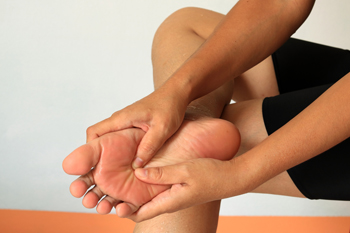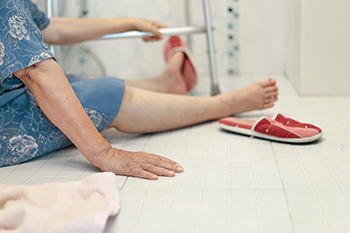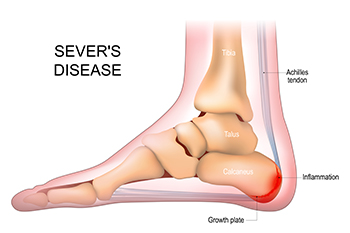Connect With Us
Blog
Items filtered by date: February 2024
How Gout Progresses and Who Is at Risk

Gout, a type of arthritis characterized by sudden and severe pain attacks, can progress through four distinct stages, each posing unique challenges and implications for affected individuals. Initially, the asymptomatic hyperuricemia stage occurs, where elevated uric acid levels accumulate in the blood without any noticeable symptoms. This stage can persist for years before progressing to acute gouty arthritis, marked by sudden and intense joint pain, typically in the big toe. If left untreated, recurrent gout attacks may ensue, leading to the chronic gout stage characterized by frequent flare-ups and potential joint damage. In severe cases, tophaceous gout may develop, characterized by the formation of urate crystals in the joints and surrounding tissues, resulting in visible lumps. While anyone can develop gout, certain factors such as genetics, obesity, dietary habits rich in purines, alcohol consumption, and certain medications increase the risk. If you have developed gout, it is strongly suggested that you are under the care of a podiatrist who can determine which stage you are in, and offer effective relief options.
Gout is a painful condition that can be treated. If you are seeking treatment, contact Dr. Michael D. Garvin from Florida. Our doctor will treat your foot and ankle needs.
What Is Gout?
Gout is a form of arthritis that is characterized by sudden, severe attacks of pain, redness, and tenderness in the joints. The condition usually affects the joint at the base of the big toe. A gout attack can occur at any random time, such as the middle of the night while you are asleep.
Symptoms
- Intense Joint Pain - Usually around the large joint of your big toe, and it most severe within the first four to twelve hours
- Lingering Discomfort - Joint discomfort may last from a few days to a few weeks
- Inflammation and Redness -Affected joints may become swollen, tender, warm and red
- Limited Range of Motion - May experience a decrease in joint mobility
Risk Factors
- Genetics - If family members have gout, you’re more likely to have it
- Medications - Diuretic medications can raise uric acid levels
- Gender/Age - Gout is more common in men until the age of 60. It is believed that estrogen protects women until that point
- Diet - Eating red meat and shellfish increases your risk
- Alcohol - Having more than two alcoholic drinks per day increases your risk
- Obesity - Obese people are at a higher risk for gout
Prior to visiting your podiatrist to receive treatment for gout, there are a few things you should do beforehand. If you have gout you should write down your symptoms--including when they started and how often you experience them, important medical information you may have, and any questions you may have. Writing down these three things will help your podiatrist in assessing your specific situation so that he or she may provide the best route of treatment for you.
If you have any questions, please feel free to contact our offices located in Port St. Lucie, FL . We offer the newest diagnostic and treatment technologies for all your foot care needs.
Causes of Numbness in the Feet

Experiencing numbness or tingling in your feet is not a sensation to be ignored, as it often indicates an underlying issue that requires attention. Common causes of foot numbness can include neuropathy, which can result from conditions such as diabetes, nerve injuries, or pressure on spinal nerves. Peripheral arterial disease, tarsal tunnel syndrome, and thyroid disorders are also potential contributors to neuropathy. Additionally, medication side effects, exposure to toxic substances like lead or alcohol, chemotherapy, radiation therapy, electrolyte imbalances, and vitamin deficiencies can affect nerve function, which may lead to numbness. Ignoring numbness, tingling, and a burning sensation in the feet may lead to further complications. By seeking timely evaluation and treatment, you can address the underlying cause of numbness and prevent potential long-term consequences, ensuring your mobility and overall well-being. If you are experiencing frequent numbness or tingling in your feet, it is suggested that you schedule an appointment with a podiatrist who is medically trained to manage this condition.
Neuropathy
Neuropathy can be a potentially serious condition, especially if it is left undiagnosed. If you have any concerns that you may be experiencing nerve loss in your feet, consult with Dr. Michael D. Garvin from Florida. Our doctor will assess your condition and provide you with quality foot and ankle treatment for neuropathy.
What Is Neuropathy?
Neuropathy is a condition that leads to damage to the nerves in the body. Peripheral neuropathy, or neuropathy that affects your peripheral nervous system, usually occurs in the feet. Neuropathy can be triggered by a number of different causes. Such causes include diabetes, infections, cancers, disorders, and toxic substances.
Symptoms of Neuropathy Include:
- Numbness
- Sensation loss
- Prickling and tingling sensations
- Throbbing, freezing, burning pains
- Muscle weakness
Those with diabetes are at serious risk due to being unable to feel an ulcer on their feet. Diabetics usually also suffer from poor blood circulation. This can lead to the wound not healing, infections occurring, and the limb may have to be amputated.
Treatment
To treat neuropathy in the foot, podiatrists will first diagnose the cause of the neuropathy. Figuring out the underlying cause of the neuropathy will allow the podiatrist to prescribe the best treatment, whether it be caused by diabetes, toxic substance exposure, infection, etc. If the nerve has not died, then it’s possible that sensation may be able to return to the foot.
Pain medication may be issued for pain. Electrical nerve stimulation can be used to stimulate nerves. If the neuropathy is caused from pressure on the nerves, then surgery may be necessary.
If you have any questions, please feel free to contact our offices located in Port St. Lucie, FL . We offer the newest diagnostic and treatment technologies for all your foot care needs.
Prevention Strategies for Enhanced Safety in Elderly People

Seniors are at a heightened risk of falling due to various factors, including age-related changes in balance, vision, and muscle strength. Additionally, underlying health conditions, medications, and environmental hazards contribute to the risk of falls among older adults. Vision impairments, such as cataracts or glaucoma, can affect depth perception and increase the likelihood of tripping or misjudging distances. Muscle weakness and joint stiffness make it more challenging to maintain balance and stability while walking or standing. Furthermore, medications that cause dizziness or drowsiness further compromise seniors' ability to navigate their surroundings safely. Environmental factors like cluttered walkways, slippery floors, and inadequate lighting also pose significant fall risks. To prevent falls, seniors can take proactive measures such as participating in regular exercise to improve strength and balance and modifying home environments to eliminate hazards. Falling can impact the feet, possibly compromising daily activities. If you are interested in learning about additional fall prevention strategies, it is suggested that you contact a podiatrist who can provide you with the knowledge you are seeking.
Preventing falls among the elderly is very important. If you are older and have fallen or fear that you are prone to falling, consult with Dr. Michael D. Garvin from Florida. Our doctor will assess your condition and provide you with quality advice and care.
Every 11 seconds, an elderly American is being treated in an emergency room for a fall related injury. Falls are the leading cause of head and hip injuries for those 65 and older. Due to decreases in strength, balance, senses, and lack of awareness, elderly persons are very susceptible to falling. Thankfully, there are a number of things older persons can do to prevent falls.
How to Prevent Falls
Some effective methods that older persons can do to prevent falls include:
- Enrolling in strength and balance exercise program to increase balance and strength
- Periodically having your sight and hearing checked
- Discuss any medications you have with a doctor to see if it increases the risk of falling
- Clearing the house of falling hazards and installing devices like grab bars and railings
- Utilizing a walker or cane
- Wearing shoes that provide good support and cushioning
- Talking to family members about falling and increasing awareness
Falling can be a traumatic and embarrassing experience for elderly persons; this can make them less willing to leave the house, and less willing to talk to someone about their fears of falling. Doing such things, however, will increase the likelihood of tripping or losing one’s balance. Knowing the causes of falling and how to prevent them is the best way to mitigate the risk of serious injury.
If you have any questions, please feel free to contact our offices located in Port St. Lucie, FL . We offer the newest diagnostic and treatment technologies for all your foot care needs.
It's Time for Beautiful Feet
Definition and Symptoms of Sever’s Disease

Sever's disease, despite its name, is not an illness, but a common heel bone disorder that affects children during their growth spurts. Also known as calcaneal apophysitis, this condition occurs when the heel's growth plate experiences inflammation due to repetitive stress and tension. Typically afflicting children aged 8 to 14, Sever's disease emerges as the bones grow faster than the tendons, leading to strain on the heel's growth plate. Young athletes engaged in high-impact sports, such as soccer, basketball, and gymnastics, are particularly susceptible. The symptoms can include heel pain, swelling, and discomfort, which can be worse during physical activities. Recognizing Sever's disease is important, as prompt intervention can alleviate symptoms and prevent long-term complications. If your child has heel pain, and frequently participates in sporting activities, it is suggested that you consult a podiatrist who can accurately diagnose and treat this condition.
Sever's disease often occurs in children and teens. If your child is experiencing foot or ankle pain, see Dr. Michael D. Garvin from Florida. Our doctor can treat your child’s foot and ankle needs.
Sever’s Disease
Sever’s disease is also known as calcaneal apophysitis, which is a medical condition that causes heel pain I none or both feet. The disease is known to affect children between the ages of 8 and 14.
Sever’s disease occurs when part of the child’s heel known as the growth plate (calcaneal epiphysis) is attached to the Achilles tendon. This area can suffer injury when the muscles and tendons of the growing foot do not keep pace with bone growth. Therefore, the constant pain which one experiences at the back of the heel will make the child unable to put any weight on the heel. The child is then forced to walk on their toes.
Symptoms
Acute pain – Pain associated with Sever’s disease is usually felt in the heel when the child engages in physical activity such as walking, jumping and or running.
Highly active – Children who are very active are among the most susceptible in experiencing Sever’s disease, because of the stress and tension placed on their feet.
If you have any questions, please feel free to contact our offices located in Port St. Lucie, FL . We offer the newest diagnostic and treatment technologies for all your foot and ankle injuries.
Blog Archives
- April 2025
- March 2025
- February 2025
- January 2025
- December 2024
- November 2024
- October 2024
- September 2024
- August 2024
- July 2024
- June 2024
- May 2024
- April 2024
- March 2024
- February 2024
- January 2024
- December 2023
- November 2023
- October 2023
- September 2023
- August 2023
- July 2023
- June 2023
- May 2023
- April 2023
- March 2023
- February 2023
- January 2023
- December 2022
- November 2022
- October 2022
- September 2022
- August 2022
- July 2022
- June 2022
- May 2022
- April 2022
- March 2022
- February 2022
- January 2022
- December 2021
- November 2021
- October 2021
- September 2021
- August 2021
- July 2021
- June 2021
- May 2021
- April 2021
- March 2021
- February 2021
- January 2021
- December 2020
- November 2020
- October 2020
- September 2020
- August 2020
- July 2020
- June 2020
- May 2020
- April 2020
- March 2020
- February 2020
- January 2020
- December 2019
- November 2019
- October 2019
- September 2019
- August 2019
- July 2019
- June 2019
- May 2019
- April 2019
- March 2019
- February 2019
- January 2019
- December 2018
- November 2018
- October 2018
- September 2018
- August 2018
- July 2018
- June 2018
- May 2018
- April 2018
- March 2018
- February 2018
- January 2018
- December 2017
- November 2017
- October 2017
- September 2017
- August 2017
- July 2017
- June 2017
- May 2017
- April 2017
- March 2017
- February 2017
- January 2017
- December 2016
- November 2016
- October 2016
- September 2016
- August 2016

